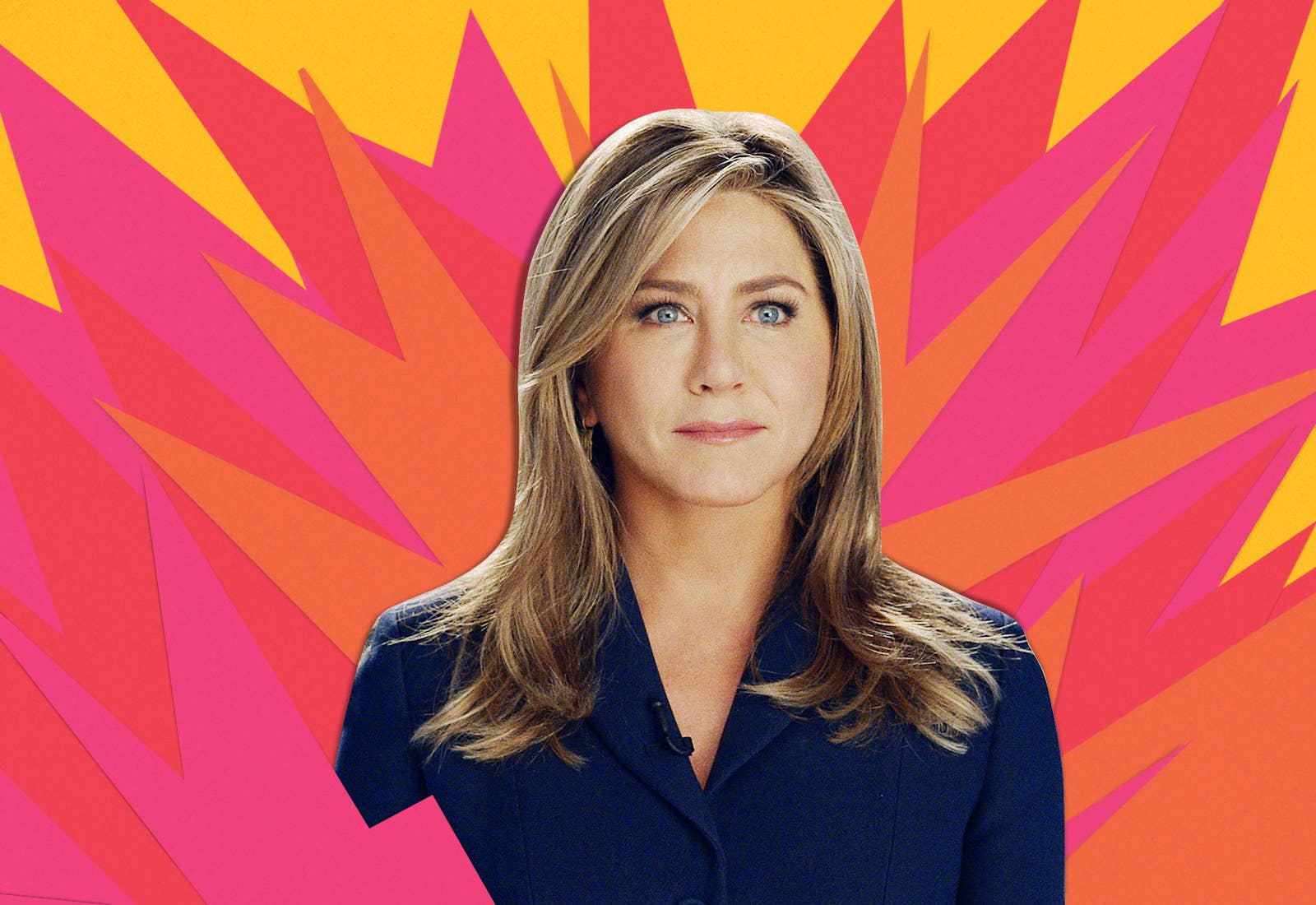
Jennifer Aniston Is Angry Now And It’s Thrilling To Watch

When we first meet Alex Levy, the morning show host played by Jennifer Aniston, she’s attempting to wake up and begin the regime of stardom at 3:30 a.m. She starts the coffee and opens a Red Bull, then fumbles to the treadmill, the world still pitch-black around her, and attempts to walk while resting her head on the control panel. She places under-eye masks on her dark circles, scrutinizes her face, jade rolls, and scrutinizes again. She gets into the elevator and rests her head back — exhausted. As she gets in the black car that takes her to the studio, her face purses in annoyance as they drive past a giant billboard of her smiling.
It’s the first hint of what The Morning Show, now streaming on Apple TV+, will spend the season unpacking: There’s the composed, cheerful, public Alex, and the deeply exhausted, deeply pissed-off person behind the mask.
And all this is before the show’s executive producer, Chip (Mark Duplass), tells Alex that her cohost, Mitch (Steve Carell), has been fired for sexual misconduct. As he quietly explains that Mitch had been under investigation by HR for multiple offenses, she explodes. “You knew about this and didn’t tell me?” she yells. “What am I, some fucking PA from Idaho who doesn’t need to know what’s going on?”
“Oh fuck you, Chip,” she spits at him after he attempts to explain himself. “Fuck you. … This affects me. My on-air partner, my TV husband, is a sexual predator now? What part of you thought that I should not be involved in this conversation?”
And yet she still has to “bring the news to America.” Sitting in the makeup chair, preparing her opening monologue, she notices Mitch is calling. She very calmly silences the phone, and then, with a burst of fury, bashes it into the drawer in front of her.
By the time Alex walks onto the morning show stage, all that anger has been temporarily, necessarily swallowed. She delivers the news of Mitch’s firing with strength and grace, a picture of self-possession and concern. Like everyone else on that soundstage, she knows that anything less would lead to endless critique. One of the network heads remarks, “It’s too bad we can’t always throw a crisis at her. It turns her lights on.”
The Morning Show, costarring the equally fed-up Reese Witherspoon, is at once a manifestation of and reckoning with women’s middle-aged rage. As showrunner Kerry Ehrin put it, “It’s almost like this orchestral finale — this huge noise and sound all these emotions that have just been stuffed down in these women for all these years, you know?”
It’s not that this rage is new. It’s always been there, in various, and variously sublimated, forms. There have just been so few opportunities for it to be listened to — at least within the mainstream — because there have been so few mainstream productions that even take older women, let alone their anger, seriously. But The Morning Show, for all of its unevenness, also serves as a meta-textual commentary on the fatigue of decades of being a woman in the public eye. This is a fine show about morning television, and a not-always-successful show about #MeToo. But it’s also a very interesting show about Jennifer Aniston.

“For the record, I am not pregnant,” Jennifer Aniston wrote in 2016. “What I am is fed up.” Because she didn’t have social media, Aniston had decided, after years of nonstop gossip about her romantic life, to write an editorial for HuffPost, lambasting the “sport-like scrutiny and body shaming that occurs daily under the guise of ‘journalism,’ the ‘First Amendment’ and ‘celebrity news.’”

It’s a fascinating, insightful piece — at one point she wonders, “If I am some kind of symbol to some people out there, then clearly I am an example of the lens through which we, as a society, view our mothers, daughters, sisters, wives, friends, and colleagues.” But it’s also shot through with palpable rage, and not just in the quotes she repeatedly places around the word “journalists.” “The sheer amount of resources being spent right now by the press trying to simply uncover whether or not I am pregnant (for the bajillionth time…but who’s counting),” she writes, “points to the perpetuation of this notion that women are somehow incomplete, unsuccessful, or unhappy if they’re not married with children.”
